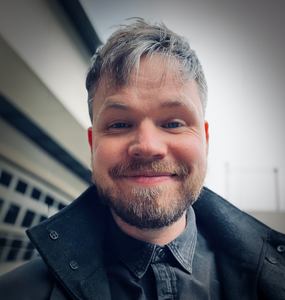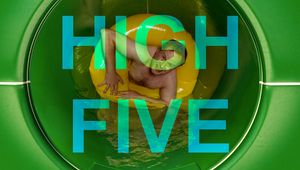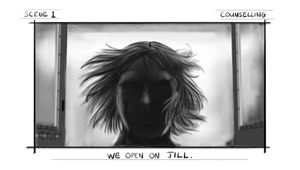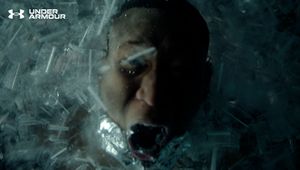
Thinking in Sound: Denis Kilty
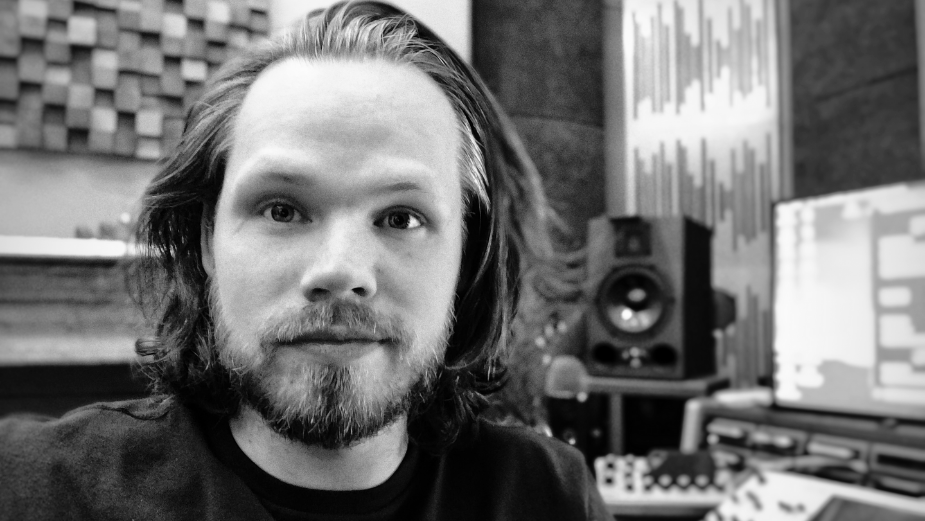
Denis is an award-winning composer and sound designer from Ireland, who creates original cinematic music and sound design for advertising and motion pictures. He most recently won The One Club Young Guns 18 Award for Sound Design. Denis collaborates remotely with a global network of creatives, vfx houses, directors and brands making award-winning content.
When you’re working on a new brief or project, what’s your typical starting point? How do you break it down and how do you like to generate your ideas or response?
Generally, the starting point depends on the creative brief - is it music, sound design, or both together - this alone has a huge effect on how the work begins. Beyond that, for film, the edit is critical. So much information is revealed by how the visual stitched together. The pace of the cut greatly influences the music's aesthetic. Depending on how creative the DOP was during the shoot, the edit can have a tremendous impact on the trajectory of the sound design.
Colour Grading is also something that is often not mentioned, but the look for me is a big thing with sound - often, the grade comes in halfway through the sound process, and it can change the perception of a scene entirely. I love seeing mood boards from treatments - they always help explain a director's vision.
Music and sound are in some ways the most collaborative and interactive forms of creativity - what are your thoughts on this? Do you prefer to work solo or with a gang - and what are some of your most memorable professional collaborations?
I've pretty much always worked solo as a sound person, particularly in the last few years. I can't escape the reality that having control over the minutia in both music and sound yields the best result. Even with fast tech to connect with people worldwide, for music and in the moment creativity, it's still not quite as intuitive as sitting and collaborating essentially with yourself, merging the sound design and music worlds as you go.
What’s the most satisfying part of your job and why?
There's generally a point in the process of every job where you know you've cracked it - a transition or edit moment that brings the piece to life. These moments are what drive me on to make everything as immersive and polished as possible - knowing that there is potential for greatness in there. It can be a very emotionally charged process, though. Working away at the complex canvas of maybe one minute of audio can leave you high and low - a lot of the time, you are effectively entrusted with inventing the soundscape for entire concepts from silence - it can be a big responsibility. Still, I guess that's why I always want to make a mark.
As the advertising industry changes, how do you think the role of music and sound is changing with it?
I do think there is a growing appetite for just high-end sound. There is a transition from 'we need to do a sound mix to finish the job' to 'let's get him on this film, he'll make it come to life - I am being hired regularly for my input and taste now, which is such a great feeling. Of course, there will always be outliers who treat music and sound as an afterthought, but I think overall there is a healthy appreciation for it. - It's up to the likes of myself to prove how brilliant a considered soundscape can be with the right resources and will.
I do think there is an interesting quirk with the language around sound, specifically in that a 'sound mix' is almost always used to describe the sound design process, even though sound design is a different craft. The sound 'mix' is the final process of blending music and sound together with VO and authoring it to a broadcast spec, so I do chuckle at how prevalent this misconception is at every level! However, it impacts budgeting, so sound design budgeting needs to be better across the board. For example, I could spend several days on a high-detail soundscape, and that's before I even begin on the music.
Who are your musical or audio heroes and why?
I do have a few people I think are particularly good at what they do. American Video Game Composer Austin Wintory is fantastic - his score for Journey taught me a lot about what one can do with the .orchestra's wind section. It is an often overlooked orchestral section in advertising and applied media music - probably because it's less immediate in its association with specific emotions. Still, it adds an insane level of colour to cinematic music that I just really appreciated for the first time when I played the game. I think the score to Horizon Zero Dawn by Joris de Man and The Flight is magnificent. Christian Henson's score to ITV's Tutankhamun is also a powerful example of evolving thematic material.
When it comes to your particular field, whether sound design or composing, are there any particular ideas that influence your thinking about the work you do?
I think the central tenet in both crafts is this: Make the best story possible. From this, everything else stems, whether it frames the decision to make a minimal or complex score or use a particular sound, or even absence of sound to create impact, catharsis, levity or whatever the story requires. The old cliche that composers are storytellers is very accurate - if people can't engage in equal parts with the high production value and compelling storytelling, we didn't do the job right. So I think it's important to remind ourselves of that.
When you’re working on something that isn’t directly sound design or music - are you the sort of person who needs music and noise in the background or is that completely distracting to you? What are your thoughts on ‘background’ sound and music as you work?
The only time I listen to music in the studio is when I do my accounts!
I guess the quality of the listening experience and the context that audiences listen to music/sound in has changed over the years. There’s the switch from analogue to digital and now we seem to be divided between bad-ass surround-sound immersive experiences and on-the-go, low-quality sound - how does that factor into how you approach your work?
This is a fair observation; however, I think as tech continues to improve, the gripe about 'bad audio' is becoming and will continue to become redundant. The tools out there that the creative tech sector is creating for consumers and pro users alike are constantly improving - these days, it's hard to find a device that can't produce high-quality sound.
My approach for every job is to act like everyone will get to see it in the cinema, so I always try and create immersive audio that blows people away. That way, at least, we can author our work in the best conditions and then test backwards all the way to the humble mobile phone. All my mixes conducted in a treated acoustic space, so I can test everything in multiple ways in a controlled environment before it heads off to broadcast.
I also check and process all my content with the best codecs for different formats to avoid getting crushed in resolution when it goes out. Every social platform and every country has other specifications for broadcast, so it's critical to be aware of that, mainly if you are working internationally, as I often am more and more these days.
On a typical day, what does your ‘listening diet’ look like?
90% of the time? Dead silence. Otherwise, I walk the beautiful pier by my studio and listen to the ocean. Nature is the most fantastic acoustic therapy there is. As I mentioned, the only time in work that I put on music is what I do my accounts - that way, I am passively listening and can take in whatever I am listening to without it feeling like work.
Let’s talk travel! It’s often cited as one of the most creatively inspiring things you can do - I’d love to know what are the most exciting or inspiring experiences you’ve had when it comes to sound and music on your travels?
I have to say travel is an amazingly therapeutic activity for your mind. Every time I travel, I feel 1,000 times more inspired and productive when I come back to it. That's why I always try and walk the pier every morning and soak in the vista of the Irish Sea - it resets my mind for that 25-30 minutes and supercharges my focus.
The West of Ireland is also incredibly stunning. This summer, after lockdown ends, I will be travelling part of The Wild Atlantic Way, a 2,500km stretch of coastal road that passes in and out of the stunning peninsulas that dot the western Irish coast. It's humbling every time I visit, and I am hoping that it gives me the fuel to make an impact creatively for the rest of 2021, at least.
As we age, our ears change physically and our tastes evolve too, and life changes mean we don’t get to engage in our passions in the same intensity as in our youth - how has your relationship with sound and music changed over the years?
Honestly, it's gotten better. I think working with more and more international brands, creatives, and generally passionate people has opened up more and more doors. I am definitely in my stride right now, and the craft is only getting better.







